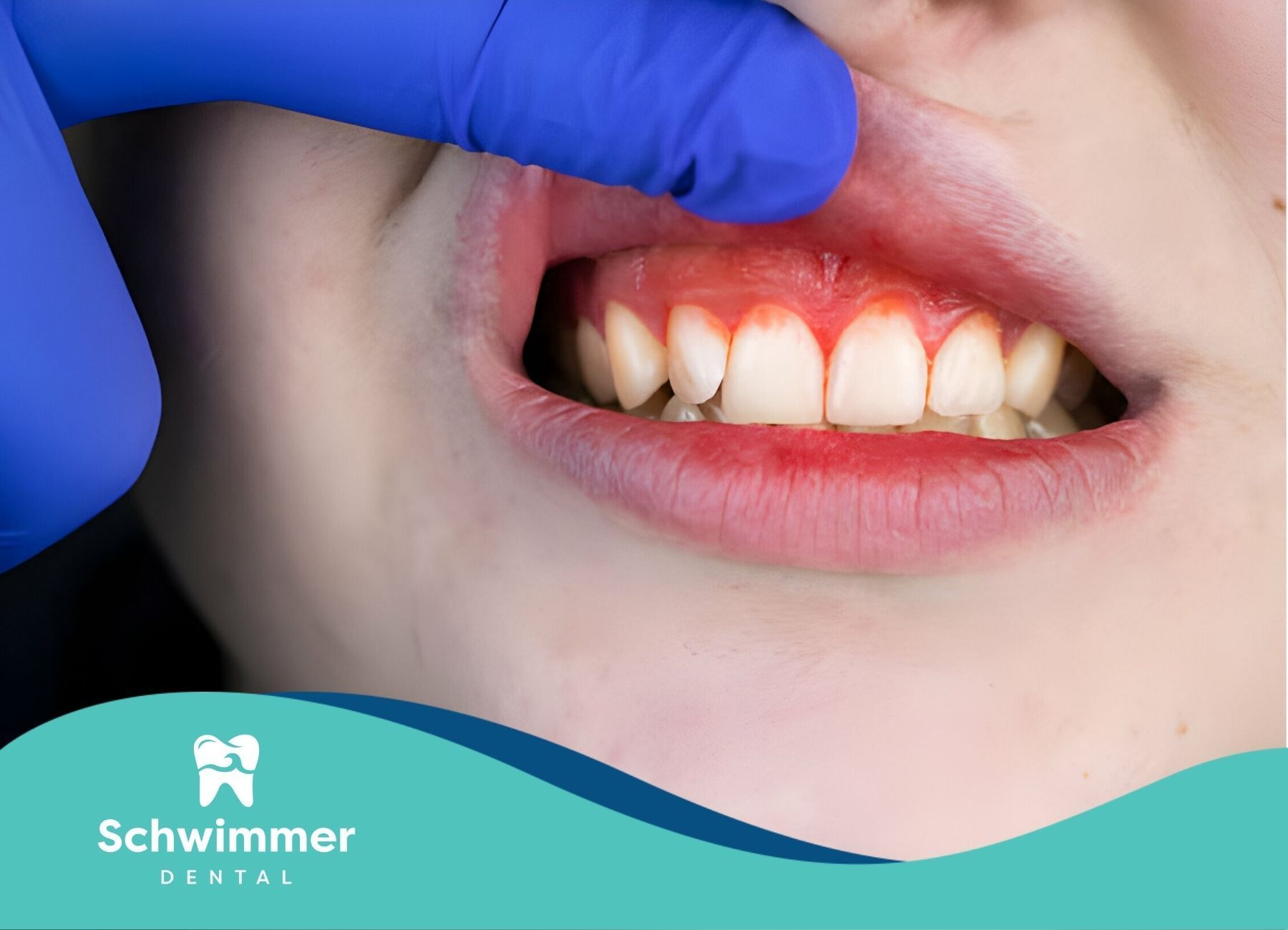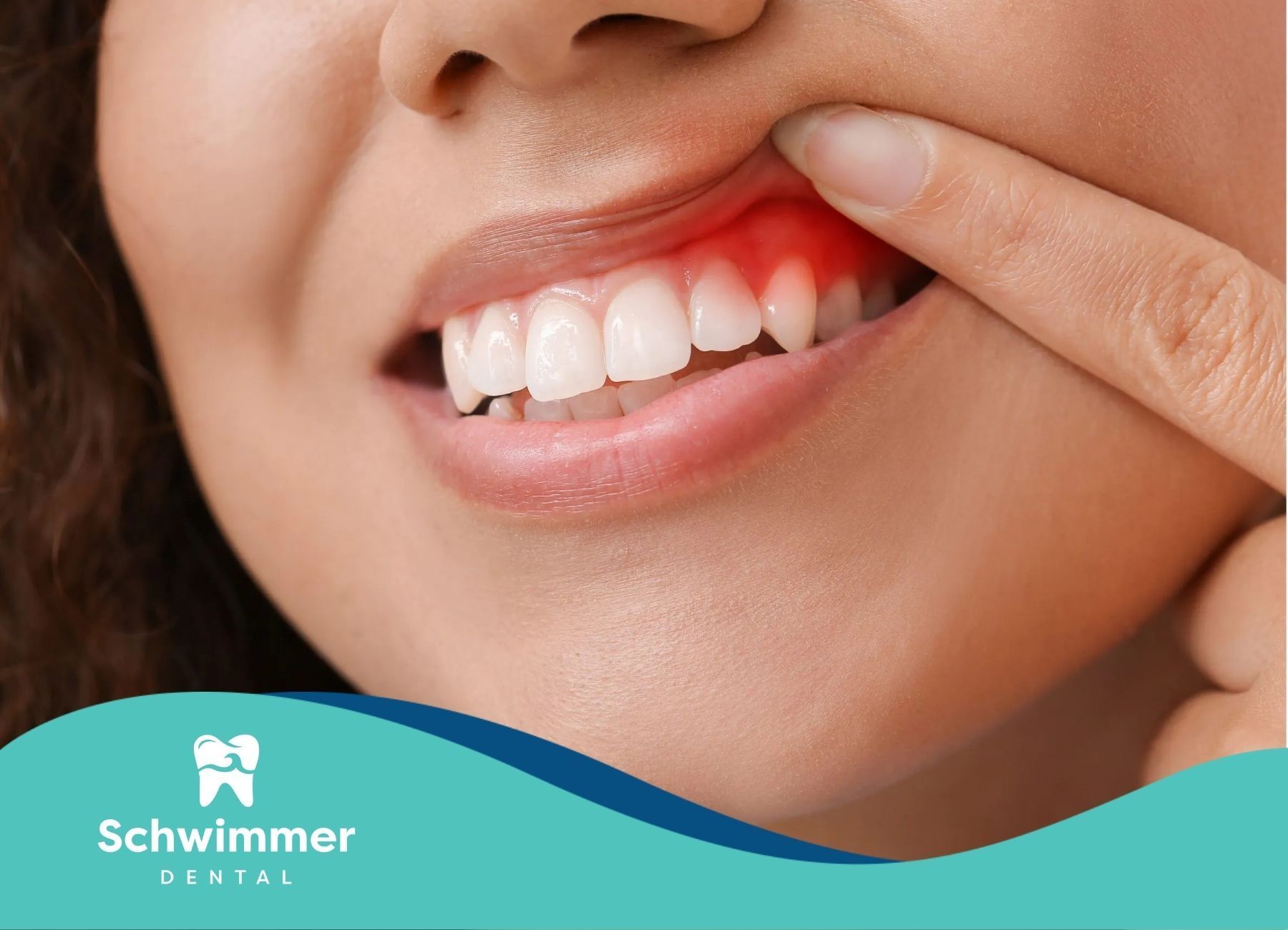Have an appointment? Complete the Intake Form
What Happens During a Dental Exam? A Detailed Guide
When it comes to maintaining good oral health, regular dental exams are essential. Whether you're visiting for a routine check-up or addressing specific concerns, understanding what happens during a dental exam can help you feel more comfortable and prepared.
Dental exams are an opportunity to evaluate the overall health of your teeth, gums, and mouth, to identify potential problems before they become serious, and to develop a proactive care plan. In this article, we will walk you through what to expect during a dental exam, why they are so important, and how they contribute to the long-term health of your smile.
Why are Dental Exams Important?
Before we dive into the specifics of what happens during a dental exam, it’s important to understand why these visits are so crucial. Dental exams not only help to detect cavities and gum disease but also play an important role in identifying underlying health issues, maintaining good hygiene, and preventing severe dental complications.
1. Early Detection of Problems
One of the most significant benefits of regular dental exams is early detection. Many dental problems, such as cavities or gum disease, can develop without any noticeable symptoms. By regularly visiting your dentist, you can ensure that any issues are caught early, which can save you time, money, and unnecessary pain.
2. Preventing Severe Dental Conditions
Dental exams provide an opportunity to prevent major oral health issues. The early removal of plaque and tartar, for instance, can prevent gum disease and tooth decay. Additionally, your dentist may advise you on lifestyle changes or habits to avoid more serious issues down the road, like oral cancer or tooth loss.
3. Comprehensive Oral Health Monitoring
Oral health isn’t isolated to just the teeth and gums. It’s also connected to your overall health. Regular exams allow your dentist to look for signs of systemic conditions like diabetes, heart disease, and even cancer. In fact, your dentist may be the first healthcare provider to detect certain conditions through your oral health.
What Happens During a Dental Exam?
Now that we’ve outlined why dental exams are important, let’s break down exactly what happens during a typical exam.
1. Medical History Review
When you arrive for your appointment, the first step is typically a review of your medical history. This allows the dentist or hygienist to understand any changes in your health, any new medications, and any medical conditions that might affect your oral care. You may be asked about the following:
- Existing health conditions (e.g., diabetes, heart disease)
- Any medications you’re currently taking
- Allergies to certain medications, foods, or materials
- Past dental treatments and any concerns
This information helps the dentist create a tailored care plan for you.
2. Physical Examination of Your Mouth
The next step in the dental exam is a physical examination of your mouth. The dentist or dental hygienist will inspect your teeth, gums, and soft tissues for signs of any issues. This includes:
- Checking for cavities or decay
- Assessing the condition of existing fillings, crowns, and other dental work
- Evaluating the health of your gums to check for signs of gum disease
- Looking for signs of oral cancer, such as lumps or irregularities in the soft tissues of your mouth
- Examining your tongue, throat, and the roof and floor of your mouth
The dentist will also look for any signs of clenching or grinding your teeth, as this can wear down your enamel over time.
3. X-Rays (If Needed)
Depending on the condition of your teeth and gums, your dentist may take X-rays to get a better view of what’s happening below the surface. X-rays are especially helpful for detecting cavities between teeth, problems with the roots of your teeth, and signs of bone loss due to gum disease.
Modern dental offices use digital X-rays, which are faster, involve less radiation, and provide a clearer image for more accurate diagnosis.
4. Professional Teeth Cleaning
Even if you brush and floss regularly, it’s still important to have a professional cleaning during each dental exam. Plaque and tartar (hardened plaque) can build up in areas that are difficult to reach with a toothbrush and floss, leading to cavities and gum disease.
During the cleaning, a dental hygienist will:
- Use special tools to remove plaque and tartar from your teeth and gums
- Polish your teeth to remove stains and smooth the surfaces
- Floss your teeth to ensure that all areas are clean
Your dentist will also check to ensure that you’re brushing and flossing correctly, providing you with tips for better at-home care.
5. Oral Cancer Screening
Oral cancer screenings are an essential part of your dental exam. Your dentist will check for any signs of oral cancer, including:
- Lumps or bumps in the mouth or throat
- Red or white patches on the gums, tongue, or the inside of your cheeks
- Persistent sores that don’t heal
Oral cancer is a serious condition that is often detected late, so early screening is crucial for improving outcomes. Your dentist will conduct a thorough examination and may recommend additional tests if needed.
6. Personalized Oral Hygiene Advice
After the physical exam and cleaning, your dentist will provide personalized advice based on your oral health. If there are any areas of concern, they will explain them to you and recommend appropriate treatment or preventive measures.
This may include:
- Brushing techniques to improve oral hygiene
- Dietary recommendations to promote better oral health
- Suggestions for reducing teeth grinding or jaw clenching
- A personalized fluoride treatment to help strengthen your teeth
- Recommendations for specific oral care products, such as toothpaste or mouthwash
The Role of Regular Dental Exams in Long-Term Oral Health
Regular dental exams are essential for not only addressing immediate dental concerns but also maintaining long-term oral health. By scheduling exams at least once every six months, you give your dentist the opportunity to monitor your oral health and identify any potential issues early.
Some additional long-term benefits include:
1. Cost Savings
By addressing minor issues early, you can avoid the need for expensive and invasive procedures later on. Early detection of cavities, for example, may save you from needing a root canal or tooth extraction.
2. Maintaining a Healthy Smile
Regular exams help you keep your teeth and gums in great shape, ensuring that your smile remains bright and healthy for years to come.
3. Personalized Care
Your dentist can provide personalized care recommendations based on your unique oral health needs. Whether it’s dietary advice or specific dental treatments, regular exams help you stay on top of your dental hygiene and health.
Conclusion
Dental exams are crucial for maintaining optimal oral health. They provide an opportunity to detect and address dental issues early, receive professional cleaning, and get personalized advice on maintaining a healthy smile. By regularly visiting your dentist, you’re not only preserving your oral health but also contributing to your overall well-being.
At Schwimmer Dental, we understand the importance of routine dental exams. Our dedicated team of professionals is here to help you maintain a healthy, beautiful smile. Whether you're due for a check-up or need more advanced treatments, we offer comprehensive dental care tailored to your needs. Schedule your appointment with Schwimmer Dental today and take the first step toward a healthier, happier smile.
Frequently Asked Questions
How often should I schedule a dental exam?
It's recommended to schedule a dental exam every six months for most individuals. However, people with specific oral health conditions may need more frequent visits.
Do I need X-rays at every dental exam?
Not always. X-rays are typically taken based on individual needs, such as when cavities or other dental issues cannot be seen through a physical examination. Your dentist will determine if X-rays are necessary.
Can I avoid dental exams if I’m not having any problems?
Even if you’re not experiencing any pain or discomfort, regular dental exams are important for maintaining overall oral health and catching potential issues before they develop into more serious conditions.
Need Assistance? We’re Here to Help
We are dedicated to enhancing your dental health and well-being.
We provide personalized dental care solutions for a confident, healthy smile.
Contact us today for Professional Dental Care.

Our caring staff will help you feel relaxed and comfortable in our state of the art office. We respect your time and pledge to deliver prompt service, backed by the latest knowledge, techniques, and technology.
Email: Office@schwimmerdental.com
Tel: (848) 294-2385
Fax: (732) 899-3347
Address: 1115 Arnold Ave,
Point Pleasant, NJ, 08742
Schwimmer Dental – Website by CWS


